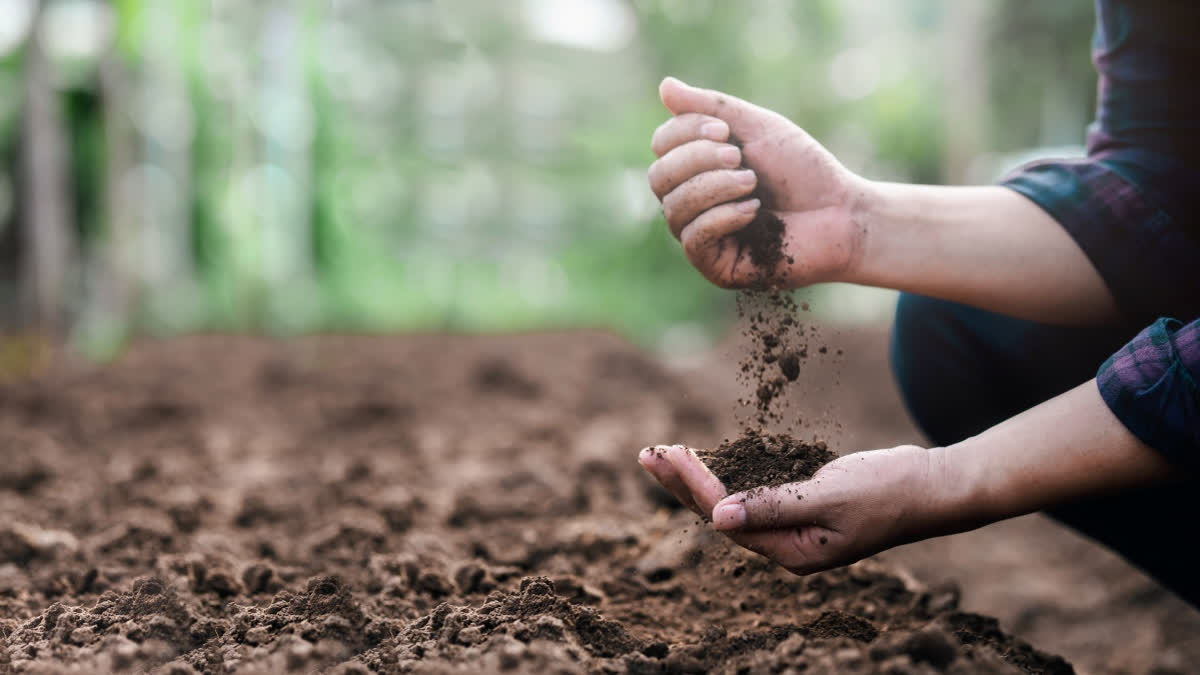Hyderabad:World Soil Day is observed annually on 5 December for give attention on the importance of healthy soil and advocating for the sustainable management of soil resources.
Background:An international day to celebrate Soil was recommended by the International Union of Soil Sciences (IUSS) in 2002. Under the leadership of the Kingdom of Thailand and within the framework of the Global Soil Partnership, FAO has supported the formal establishment of World Soil Day as a global awareness-raising platform.
The FAO Conference unanimously endorsed World Soil Day in June 2013 and requested its official adoption at the 68th UN General Assembly. In December 2013 the UN General Assembly responded by designating 5 December 2014 as the first official World Soil Day. The date of 5 December for World Soil Day was chosen because it corresponds with the official birthday of H.M King Bhumibol Adulyadej, the King of Thailand, who officially sanctioned the event. In 2016 this day was officially recognised in memory and with respect for this beloved monarch who passed away in October 2016 after seven decades as head of state. This year’s celebration is particularly significant as it is the 10th celebration globally and, hosted by the Kingdom of Thailand.
Theme:The theme for the World Soil Day celebration this year 'Caring for Soils: Measure, Monitor, Manage', underscores the importance of accurate soil data and information in understanding soil characteristics and supporting informed decision-making on sustainable soil management for food security.
Significance of the Soil:Soil is vital to life on the Planet – it is capable of supporting plant and tree life by providing them with nutrients, water and minerals. It is home to millions of insects, bacteria and small animals. Without healthy soil, we would not be able to grow crops or other useful plants, support livestock, or have materials to build shelter. Healthy soils also store and filter water, recycle nutrients and help us deal with the negative effects of climate change by storing large amounts of carbon.
10 Facts about Soil:
- 95% of our food comes from soils
- 33% of soils are degraded
- It can take up to 1000 years to produce just 2-3 cm of soil
- Soils supply 15 of the 18 naturally occurring chemical elements essential to plants
- There are more living organisms in a tablespoon of soil than people on Earth
- Over the last 70 years, the level of vitamins and nutrients in food has drastically decreased
- Two billion people worldwide suffer from lack of micronutrients, known as hidden hunger
- Agricultural production will have to increase by 60% to meet the global food demand in 2050
- Up to 58% more food could be produced through sustainable soil management
- Up to half of our household waste could be composted to nurture our soil
Salt-Affected Soil:Salt-affected soils often occur on irrigated lands, especially in arid and semiarid regions, where annual precipitation is insufficient to meet the evaporation needs of plants. As a result, salts are not leached from the soil, but accumulated. Salt-affected soils are less productive and fertile.
